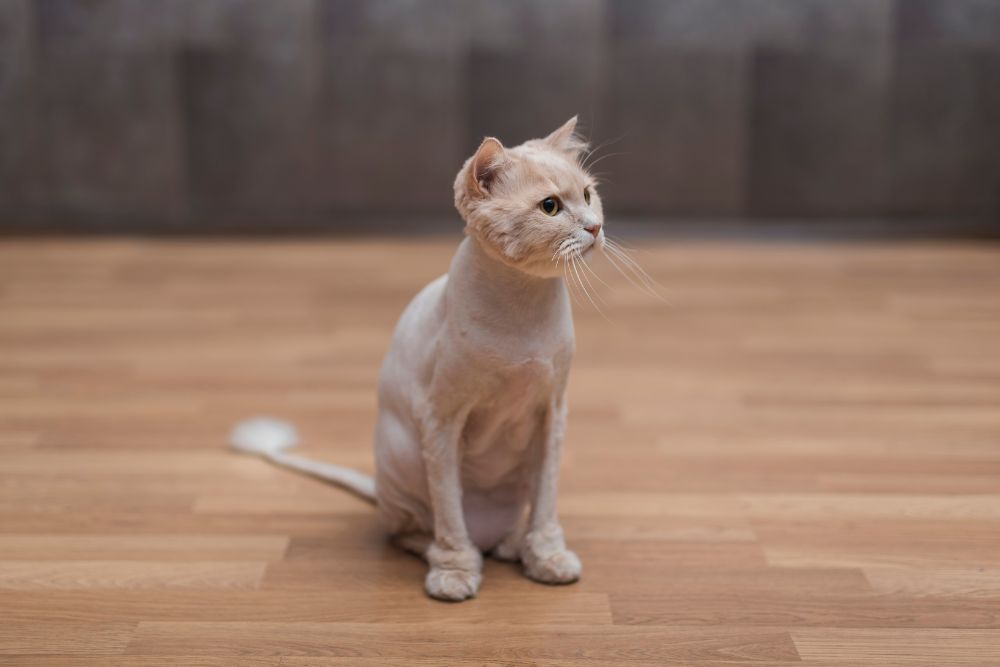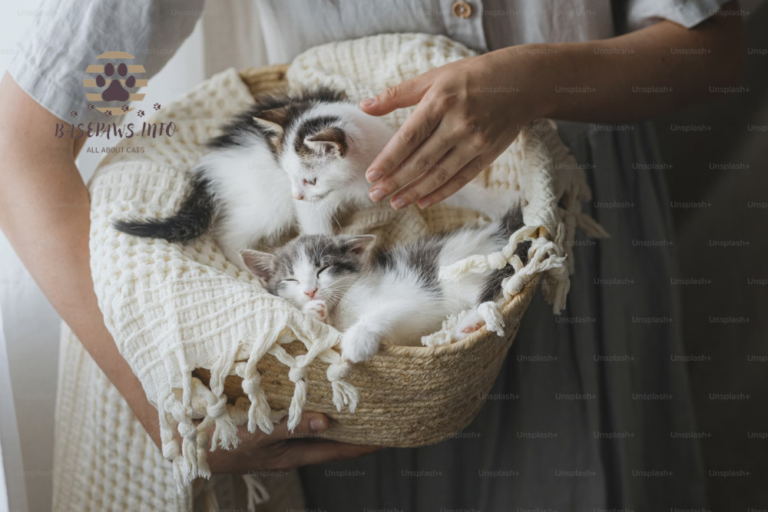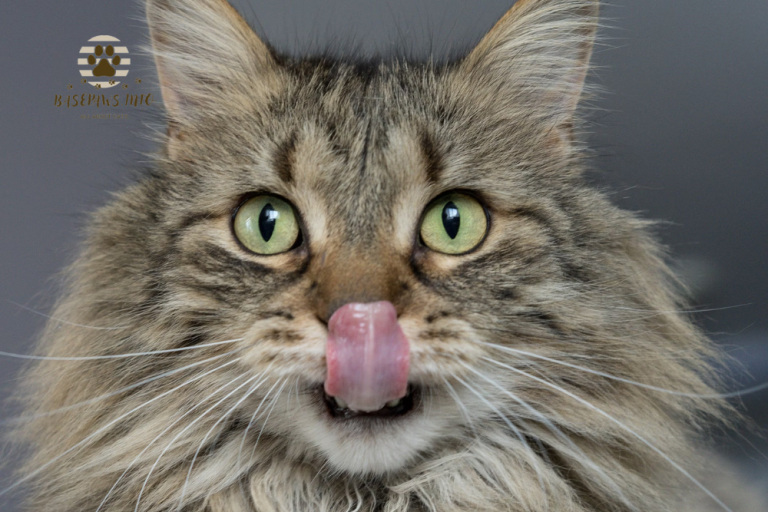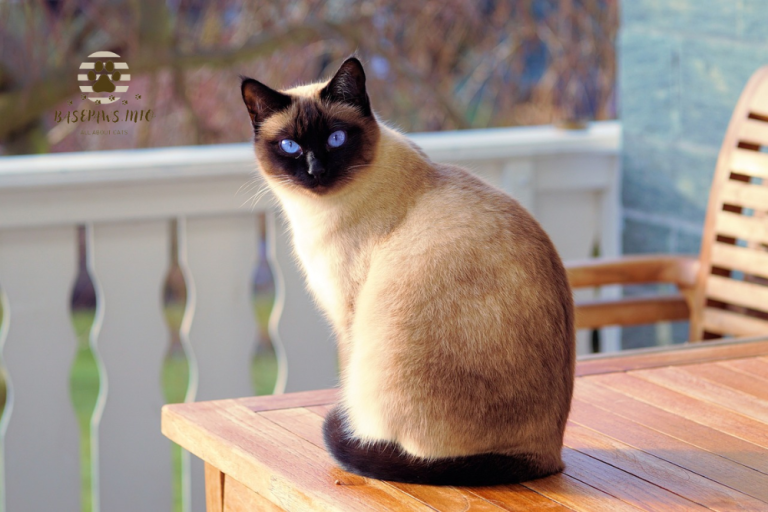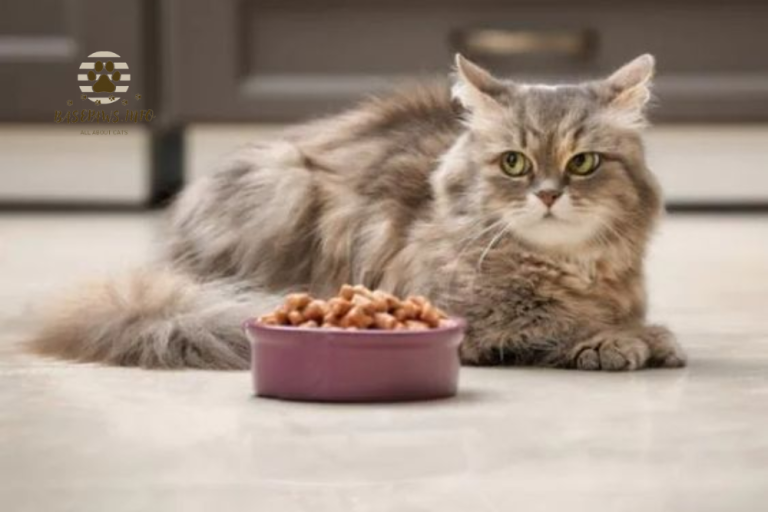Cat Losing Weight? 10 Hidden Reasons Behind It
When your cat starts loosing weight unexpectedly, it can be worrying. This could be due to several reasons, including not eating enough food, stress, or even serious health conditions like diabetes, hyperthyroidism, or kidney disease. Sometimes, weight loss happens even when your cat is eating normally, which may signal issues like intestinal parasites or dental problems.
If your cat losing weight but still eating well, or you notice other symptoms like lethargy, vomiting, or changes in behavior, it’s a sign that you need to take action. Ignoring these signs could lead to bigger health problems down the road.
What Can You Do?
The good news is, weight loss in cats can often be treated once the underlying cause is identified. Start by scheduling a visit to your vet for a thorough checkup. Your vet can run tests to find out what’s going on and recommend the best course of treatment. Simple adjustments like changing their food, addressing stress, or treating any medical issues can help get your cat back to a healthy weight and feeling better again.
Symptoms of Cat Weight Loss
When your cat losing weight, you may notice a few key signs. These can include:
· Visible thinning, especially around the ribs or spine
· Loss of muscle mass
· Lethargy (low energy)
· Changes in appetite or eating habits
· Vomiting or diarrhea
· Dull or rough coat
Causes:
There are several reasons why your cat losing weight. Some of the most common causes include:
- Not eating enough food or poor nutrition
- Stress or changes in their environment
- Intestinal parasites (like worms)
- Medical conditions such as diabetes, hyperthyroidism, or kidney disease
- Dental problems that make eating painful
- Food allergies
Identifying the exact cause can help you find the right treatment and get your cat back to a healthy weight.
10 Reasons Your Cat Might Be Losing Weight
1. Not Getting Enough Food
One of the most common reasons for a cat losing weight is simply not consuming enough calories. This could be due to feeding them less food than they need or offering low-calorie options that don’t meet their energy requirements.
2. Intestinal Parasites
Intestinal parasites, such as worms, can significantly impact a cat’s ability to absorb nutrients. Even if they eat regularly, these parasites can lead to weight loss by stealing the nutrients meant for your cat.
3. Feline Diabetes
Feline diabetes is a serious condition that can lead to weight loss. Affected cats often experience increased thirst and urination, which can result in weight loss despite a good appetite. Early diagnosis and treatment are crucial for managing this condition.
4. Feline Hyperthyroidism
Hyperthyroidism, a common hormonal disorder in older cats, can cause significant weight loss. This condition leads to an increase in metabolism, making the cat burn more calories than it consumes, resulting in a thinner appearance.
5. Feline Kidney Disease
Kidney disease is another major cause of weight loss in cats. As kidney function declines, cats may lose their appetite and, consequently, weight. Regular vet check-ups are essential for early detection of kidney issues.
6. Feline Viral Diseases
Viral diseases such as feline immunodeficiency virus (FIV) or feline leukemia virus (FeLV) can cause weight loss due to their impact on the immune system and overall health. Infected cats often experience chronic health issues that contribute to weight loss.
7. Dental Problems
Dental issues, including tooth decay or gum disease, can make eating painful for cats, leading to decreased food intake and weight loss. Regular dental check-ups and good oral hygiene can help prevent these problems.
8. Psychological Stress
Cats can experience stress from changes in their environment, such as moving to a new home or the introduction of new pets. Stress can cause a loss of appetite, leading to weight loss. Creating a calm and stable environment can help alleviate this stress.
9. Food Allergies
Food allergies can also lead to weight loss if a cat has an adverse reaction to certain ingredients. Symptoms such as vomiting or diarrhea can prevent proper nutrient absorption, making it essential to identify and eliminate allergens from their diet.
10. Aging
As cats age, they may naturally lose weight due to a decrease in metabolism, muscle mass, or dental issues. Regular veterinary care can help manage age-related changes and ensure your cat maintains a healthy weight throughout its life.
Is Cat Weight Loss Ever Normal?
In some cases, a small amount of weight loss can be normal, especially if your cat is older or has been more active. However, sudden or unexplained weight loss is usually a sign of a problem and shouldn’t be ignored. If your cat is losing weight quickly or noticeably, it’s a good idea to get them checked out by a vet.
Why Is My Older Cat Losing Weight?
As cats age, they may naturally lose a little weight due to slower metabolism or muscle loss. However, significant weight loss in an older cat can be linked to health issues like kidney disease, hyperthyroidism, or dental problems. Monitoring their weight and behavior is especially important as they get older.
Signs to See a Feline Vet for Cat Weight Loss
You should see a vet if your cat is:
- Losing weight suddenly or without explanation
- Eating normally but still losing weight
- Showing other symptoms like vomiting, diarrhea, or low energy
- Acting differently or showing behavioral changes
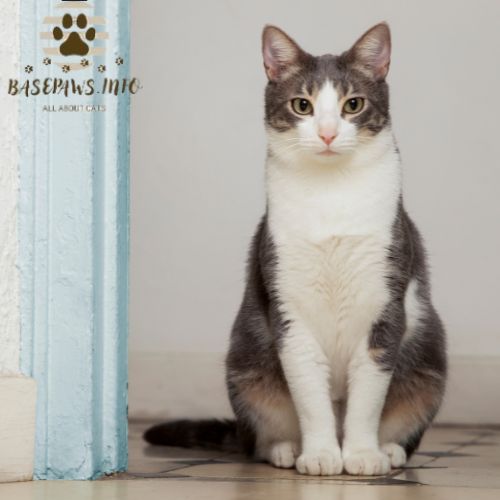
Treating Weight Loss in Cats
The treatment for cat weight loss depends on the cause. Once the vet identifies the reason (such as illness, parasites, or stress), they will suggest the right solution. This might involve changing their diet, giving them medication, Play with your cat, or treating an underlying health condition. With proper care, most cats can recover and return to a healthy weight.
How Can Psychological Stress Cause Weight Loss in Cats?
When a cat is stressed or anxious, it may eat less or have changes in its metabolism, leading to weight loss. Stress can be triggered by changes in environment, routine, or interactions. Reducing stress can help prevent a cat from loosing weight.
Can an Illness Be the Cause of My Cat’s Weight Loss?
Yes, illnesses like diabetes, hyperthyroidism, or kidney disease can cause a cat to lose weight. Even if your cat seems to eat normally, these health issues can affect nutrient absorption. A vet visit is important if illness is suspected.
Can You Switch Your Cat’s Food at Any Time?
Switching your cat’s food suddenly can upset their digestive system, possibly leading to weight loss. It’s best to transition to new food gradually to avoid problems. Always consult your vet if you’re considering a diet change for a cat losing weight.
Can You Prevent Weight Loss in Cats?
Preventing a cat from losing weight involves ensuring they eat a nutritious diet, managing their stress, and keeping them active. Regular vet visits can catch early signs of health issues. Keeping track of their weight helps prevent serious problems.
What if My Cat is Losing Weight but Still Eating Well?
If your cat losing weight but still eating normally, there may be an underlying issue like parasites, diabetes, or a thyroid problem. It’s important to have your cat checked by a vet to find the cause and begin treatment.
Body Condition Score (BCS) Chart for Cats Losing Weight:
| BCS Score | Description | Physical Signs |
|---|
| 1-2 | Severely Underweight | – Ribs, spine, and pelvic bones are easily felt or visible with no fat covering. – Significant muscle loss and an obvious waist. – Severe loss of fat around the abdomen and other areas. |
| 3-4 | Underweight | – Ribs are easily felt with minimal fat coverage. – Defined waist and tucked-up abdomen. – Mild to moderate muscle loss. |
| 5 | Ideal Weight | – Ribs can be felt with a thin layer of fat. – Clear waistline and slightly tucked abdomen. – Healthy muscle tone with no noticeable fat loss. |
| 6-7 | Overweight | – Ribs are difficult to feel under a layer of fat. – No clear waistline; abdomen slightly rounded. – Fat deposits on lower back and abdomen. |
| 8-9 | Obese | – Ribs are not palpable under thick layers of fat. – No waistline, with a visibly round and sagging abdomen. – Excess fat deposits on face, limbs, and abdomen. |
Food Allergies as the Culprit Behind a Cat’s Weight Loss
Food allergies can be a sneaky reason for a cat losing weight. When a cat has an allergy to certain ingredients in their food, it can lead to digestive issues, such as vomiting or diarrhea. These problems prevent them from absorbing the nutrients they need, resulting in weight loss despite regular meals. If you notice your cat losing weight and showing signs of discomfort after eating, it may be worth discussing food allergies with your vet. Switching to a hypoallergenic diet can help your cat feel better and regain their healthy weight.
Helping Your Cat Grow and Stay Strong and Healthy — Tin by Tin
To ensure your cat remains healthy and doesn’t experience weight loss, it’s essential to provide them with a balanced and nutritious diet. Feeding your cat high-quality food that meets their dietary needs can make a significant difference in their overall well-being. Whether you choose dry kibble, wet food, or a mix of both, look for options rich in protein and essential nutrients. Regularly checking their weight and adjusting portions as needed can help prevent your cat losing weight while keeping them strong and vibrant. Remember, a happy and healthy cat is a well-fed cat, so pay attention to their eating habits and consult your vet if you have any concerns.
How should I begin a weight-loss program for my cat losing weight?
Before starting a weight-loss program for your cat losing weight, it’s essential to consult your vet. They will assess your cat’s health, set a target weight, and recommend a balanced diet tailored to their needs.
What makes veterinary weight-loss foods special for a cat losing weight?
Veterinary weight-loss foods are specially formulated to provide essential nutrients while reducing calorie intake, ensuring your cat losing weight stays healthy without feeling hungry. These foods often have added fiber to help with satiety.
How much should I feed my cat losing weight to promote healthy weight loss?
The amount you should feed a cat to lose weight depends on their ideal weight and activity level. Your vet can provide a specific feeding plan that meets your cat’s nutritional needs while promoting healthy weight loss.
How can I encourage my cat to lose weight to get more exercise?
If your cat losing weight, it can be a sign of an underlying health issue, such as diabetes or hyperthyroidism. Unintentional weight loss is always a concern, so it’s important to consult a vet to ensure your cat remains healthy.

